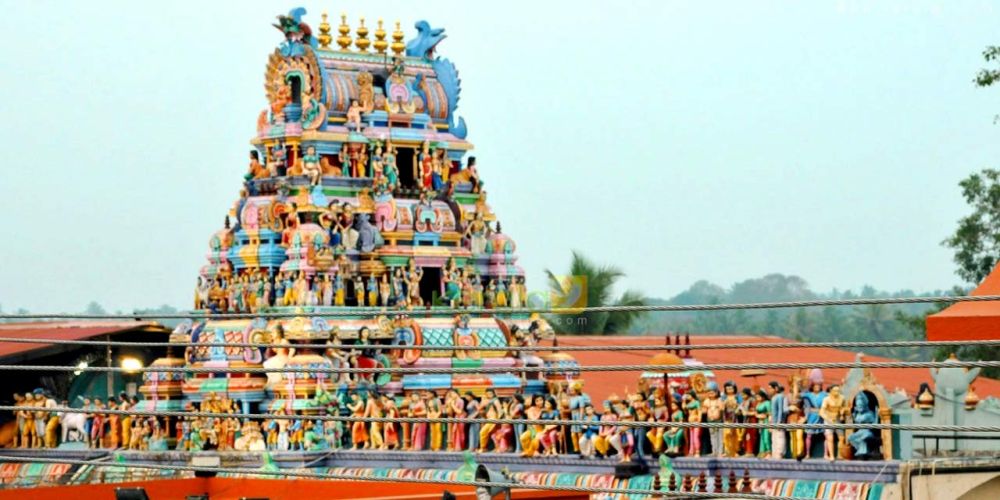

The Attukal Bhagavathy Temple, located in the heart of Thiruvananthapuram (Trivandrum), the capital of Kerala, India, is an ancient temple with a rich history steeped in tradition and spirituality. This temple is dedicated to the goddess Attukal Bhagavathy, who is believed to be an incarnation of Parvati, the consort of Lord Shiva. The history of this temple is interwoven with the folklore of the region, which tells of the divine appearance of the Goddess to a devotee, where she expressed her desire for a shrine to be built at that place.
Over the years, the temple has grown in significance and has witnessed numerous renovations and expansions. During the 18th and 19th centuries, the temple became more prominent as the ruling royal family of Travancore provided support for its maintenance and development.
Tourism associated with the Attukal Bhagavathy Temple has been primarily religious in nature, attracting pilgrims from all over Kerala and neighboring states. This shrine gained significant attention after it started hosting the annual Attukal Pongala festival, which has the distinction of being recorded in the Guinness Book of World Records for the largest gathering of women in the world.
The tourism history of the Attukal Bhagavathy Temple took a momentous turn during the late 20th century when the festival began to draw international attention, leading to a steady increase in foreign visitors wishing to experience this unique cultural event.
In recent times, the Attukal Bhagavathy Temple has seen a shift in tourism trends. While it continues to be a significant center for religious tourism, there is an increasing interest in cultural tourism as well, with many non-religious tourists visiting the temple to admire its architecture, learn about its customs, and experience the peaceful atmosphere.
The latest trend involves the integration of technological advancements to facilitate a better experience for pilgrims and tourists. The temple now offers online services for darshan booking and e-hundi (offerings), making it more accessible to a global audience. Additionally, during times like the Covid-19 pandemic, the temple adapted to virtual platforms to allow devotees to participate in rituals and festivals from the safety of their homes.
Moreover, the temple has been the focus of initiatives to promote eco-friendly tourism practices, such as the use of biodegradable materials during festivals to reduce the environmental impact of the massive gatherings.
In conclusion, the tourism history and the latest trends at the Attukal Bhagavathy Temple reflect its enduring relevance as a religious, cultural, and architectural landmark in Kerala. It continues to attract a diverse range of visitors, from loyal devotees to curious travelers, all drawn to its spiritual aura and rich heritage.